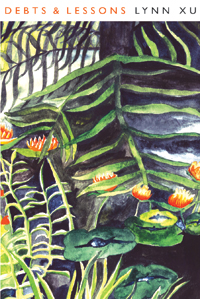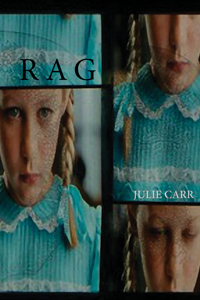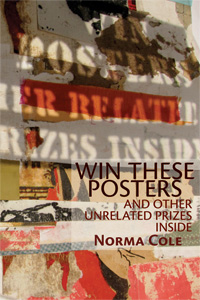Description
The poems in Lynn Xu’s striking debut collection, Debts & Lessons, travel under the power of history’s illusory engine and echo its ululations of love, violence, and lament. Named after the first part of Marcus Aurelius’s Meditations, this book also finds its way across oceans and between languages, as the poet looks to the dead for guidance amid the abstractions of contemporary life. Xu pays her phantoms (and her readers) with the dream-currency of hallucinatory songs, which balance her finely-tuned ear against a world of awakenings.
Finalist, Los Angeles Times Book Prize in Poetry
Selected by Cathy Park Hong as part of the New American Poets Series:
When I read a collection, I listen for—to borrow Roland Barthes’ term—a lyrical punctum which can be defined as a poem that uses prosody and word play to prick the surface of language and flood the reader with an irreducible spectrum of feelings that is as uncanny as it is instantaneous. This perhaps is a desired affect for any lyric poem and the most memorable and difficult poets such as Hopkins, Celan, Lorca, and Berryman (poets who Lynn Xu commemorates in her book) conjure this sonorous affect through a violent restructuring of language. Xu also strikes this tuning fork in her astonishing debut Debts & Lesson. While her poems are more restrained and subtler than the dramatic techniques employed by her poetic inspirations, Xu also crafts her lines so that they sing in a third language that always appears to stand on the threshold between languages, the threshold between the conscious and unconscious, and the threshold between the living and the dead.
One of The Volta‘s Best Books of 2013
One of One of The Volta‘s Best Books of 2014
Lynn Xu’s Debts & Lessons is a book of influences and emanations. Finding their namesake in the Meditations of Marcus Aurelius, Xu’s poems consider acts of goodness, kindness, and deliberation. Yet Xu’s apprenticeship in the classical comes up against the absurd demonic bleakness of other lessons—those we find in Macbeth and hellish passages from Dante, Eliot, and Milton. Hers is a poetry of theodicy and, as she traces the features of her own face in the faces of the past, striking originality.
Susan Stewart, author of The Poet’s Freedom: A Notebook on Making
With sharp turns and tunings of breath, line, and body (of water, of knowledge, of work) it comes to me—this magnificent, long-awaited first book by Lynn Xu, Debts & Lessons. In the uneasy currents which speed the organs, it sings the dead to sleep, traveling with uncompromising largesse. Language breaks open in the double currency of love and translation. “Life flows backward into night.” Ask me how long I have waited for this book—“Say river,” say desire.
Sawako Nakayasu, author of Texture Notes
Lynn Xu makes the poetic line a little theater where the belatedness of language is felt—and sometimes lulled into suspension. [She] is an expert at multiplying sites of resonance and ambiguity, of conjoining or confusing epochs and zones, braiding her lines into a “wreath / in which time, unleaving did / Row back, backward its small current.” It did and it does.
Ben Lerner
About the Author
Reviews
Excerpt
Lynn Xu was born in Shanghai. Her poems have appeared in 6×6, 1913, Best American Poetry 2008, Boston Review, Octopus, Poor Claudia, and others. A chapbook, June, was published by Corollary Press in 2006. The recipient of a Fulbright Fellowship and a William L. Magistretti Fellowship, she is currently the Jacob K. Javits Fellow at UC Berkeley, where she is a Ph.D. candidate in Comparative Literature. She holds an MFA from Brown University. With Robyn Schiff, Nick Twemlow, and husband Joshua Edwards, she coedits Canarium Books. Between Stuttgart and Marfa, she divides her time.
A brief interview with Lynn Xu
(conducted by Rusty Morrison)
How/why did you begin Debts & Lessons? What initiated the work?
The first poem in the book is called “Say You Will Die For Me” and it is a triptych for many reasons, but the main one is: how to think of love as an argument? In the wake of ‘twin heartbreaks’, let’s say, I wrote this poem, and my self-appointed recuperation involved a lot of French theorists: Levinas (on alterity), Nancy (on being-with), Barthes (on the lover) and Derrida (on envois). The second and third series were written a few years later, between Oaxaca and New York, when Josh and I were first falling in love. A lot of what now remain used to be sonnets. Like all things, sonnets will decay and tear open with time and listening.
You’ve raised the influences of theorists; I’m curious if the poems in Debts & Lessons were influenced by any poets or writers whose work is not in the genres of philosophy or critical theory?
With regard to voices in the undergrowth this book is certainly populated. The “Lullabies” are frank with apostrophes and with crossings. Lorca was an early love. Writers whose work have instructed me: Lyn Hejinian, Susan Stewart, C.D. Wright, Rosmarie Waldrop, Anne Carson, and Susan Howe. When I was starting out, to see female poets break rules was foundational. Among them Howe was most important. In her work, the value of the vocable holds equal weight as a visual unit. This is true in Dickinson as well. From the bone structure of the ‘finger’ the Greeks derived the unit of the ‘dactyl,’ as if the anatomy of one’s body could meet the anatomy of one’s breath. Reading Cormac McCarthy and Brian Evenson this hallucination can be felt.
From Geoffrey G. O’Brien I learned the structural value of a line. From Forrest Gander, sound. From Keith Waldrop, the shape of play. And from Robert Hass, how to behold.
To the Surrealists I return religiously.
How did you come to choose the title of this book?
The title of the book (Debts & Lessons) comes from the opening section of Marcus Aurelius’s Meditations. This section is very small, only two or three pages, in which he names the main figures in his lives and the lessons he learned from each. Though these thoughts are brief, they set the tone for his book and provide, as it were, the foundation of being able to live and write (to think) at all. We are not surprised that the main tributes are paid to parents and parts of family, teachers and friends—in turn, the values formed from living among them.
The last poem shares its title, though carries within it a limit or formal difference, which I’d like to think of as Kassandra—at least, the way Anne Carson describes her: “a self-consuming truth . . . a glass that does not give back the image placed before it.” The poem takes its first breaths from reading Milton’s “Samson Agonistes” and was written amidst demonstrations in Oakland and on UC campuses during the Occupy Movement. With batons and the teargas in mind, these events appeared to me a palimpsest of past struggles. History we have failed to learn. Lessons we have woven into our lives not as wisdom but as debt. It is difficult to think of myself as a part of this education system. I hope the struggle continues to build alternative communities, wherein different forms of valuation become possible.
What, specifically, were some of the most interesting surprises you encountered or most daunting challenges you faced as you worked through the writing of the poems in this book?
Because the book was written over many years, the most exciting parts were met with changes in the measure of my natural breath. The metabolism of one’s body transforms over time, so too the rhythm that one carries and, in some sense, learns to endure.
Would you tell me about yourself, your history, your interests?
I was born in Shanghai and lived there until I was nine. An early diagnosis (whether by occult or superstition) confirmed that I was allergic to the sun. I spent my childhood indoors, with nannies and with my grandparents, both of whom practiced traditional Chinese medicine. The house was always filled with the smell of herbs and roots. Language (as with all education in China) began with classical poetry, and I was instructed to memorize and recite poems by Li Bai, Du Fu, Wang Wei, and so on. I was a poor student in school and even now, I cannot tell you what I am learning. But hindsight provides us all with exceptional vision, so time is not a thing I want hurried. I received my BA in English from UC Berkeley and my MFA from Brown University. I have worked at various jobs and lived in different countries. I am interested in flowers and in walking. To desire and to dream I also hold allegiance. I admire the work of Francis Alÿs, Tadao Andō, and Lee Bontecou. I would like to live a good life and make good work. These are my interests. I would not mind moving back to Mexico.
The Canary eventually became Canarium, the press that you now co-edit? How did all that come about?
The Canary was Josh’s magazine, which he’d edited with Nick Twemlow, Robyn Schiff, and Anthony Robinson from 2002 to 2007. They were the first to publish my poems. Josh and I started writing each other as a result. We did not meet in person until two years later, when he came to New York to launch the last Canary. I organized a reading for him (along with Fred Schmalz and Matt Rohrer) at the then Adam’s Books (now Unnamable). That summer, with support from the University of Michigan at Ann Arbor, The Canary was changing into Canarium. Josh had moved to New York and discussions surrounding its future found me already on board.
Who are the authors with whom you feel a kinship with now? &/or Who are you reading currently? &/or which writers do you think your readers might imagine are in conversation with the poems in Debts & Lessons?
Debts & Lessons is promiscuous, if anything, about its affinities and kin. Currently I am reading Dickinson’s letters to Susan Huntington and discovering H.D. for the first time. A lot of my reading practice is re-reading. I also like to read with voices I can hear, so friends and teachers populate these shelves. What I cannot wait for is Josh to finish Agonistes. That book blows most things I read out of the water. Those who’ve yet to hear him read from it I envy you this first encounter.
You painted the artwork that became the primary image for the cover design for this book. And, you and your husband Joshua were the primary creators of this cover image. Can you speak to this process, and your intentions for the cover?
The cover image is a watercolor study of Henri Rousseau’s “Negro Attacked by a Jaguar.” In many ways I wanted a wildness watercolor simply cannot permit. What I admire in Rousseau is the clarity of entanglement. Although involved, a leaf still knows where it begins and ends. The success of camouflage lies in its remaining difference. In oil the shapes are happy to patrol their boundaries. The main conflict in watercolor is between darkness and transparency.
^ back to menu
“Language exists because nothing exists between those/ who express themselves,” Xu announces in the first sequence of her debut, wherein “The rustling of form is a sign of voice” and “The earth [is] all symbol.” Here, Xu brings to mind Anne Carson and Susan Howe, especially with regard to form, and Lyn Hejinian, in her relationship to language.
Drawing the title of her first book from the opening section of Marcus Aurelius’s Meditations, Canarium Books coeditor Xu offers an intensive meditation on life’s demands. Her method is fresh, startling imagery, bordering on the surreal; if “Language exists because nothing exists between those/ who express themselves,” then she has done her job breathtakingly. Readers will want to see what she does next.
The truth, Xu seems to say, is that sound possesses us, rather than vice versa, and the most profound notes ever struck are those unpositioned within, and thus imperatively organic to, our environment. Xu is compelled, that is, by the notion of incidence, a term that means at once our risk of suffering a specific condition, the arrival of said condition, and a post mortem of the frequency with which such a condition has visited or will visit itself upon its subject. For Xu, the condition in question is sound itself, and the subject is the human heart, which Xu likens to a “long dagger” in one particularly glorious metaphor. “Say You Will Die for Me” is consequently the perfect prelude to a work of staggering insight, tenderness, and determination: Xu repeatedly maps the duration of things–faith, love, language, the spaces between language, the absences filled by language–and the coordinates she positions her reader between are heartbreakingly precise.
Debts & Lessons by Lynn Xu is a miracle of quietude; each and every poem is a bright instrument of attention somehow becoming both empathy and possession. No poet has so immediately won my trust as has Lynn Xu.
I want to begin at the beginning of this book. I want to do this not just because the first poem (a quatrain centered on the page) has been visually branded on my brain with all its lyric intensity, but because it and this first section introduce concerns that are then tested throughout the book. We begin in the litany: “Say you will die for me / Say you will die for me / Say you will die for me / Say you will die for me.” The stakes are high, and the speaker’s demands are great. But it isn’t death of the other that the speaker is asking for but language—a bond that might be possible through it. Concerns with language are explicit in this section where language is both a separating and joining force (“Language exists because nothing exists between those / who express themselves”). In our desire to bridge the void inherent in language, language becomes a prayer “Held in the dark, without sleep.” Language is both a source of the darkness and a comfort in the darkness. Faith and language are indistinguishable structures and pursuits. Within this logic, faith is only a condition because one could be faithless. Faith creates “two hells”: “The one you are in. And the one you are after.” The hell we’re “after” here is as much what we are desiring as it is what we have survived.
The successive shifts between distant avowal and nakedness come to feel ultimately like attempts to focalize, if not clarify, our attention among incongruent desires, inheritances, and near impossible figures. As the fourth poem in “Earth Light” proffers: “Decay / Lets on a hum. / Listen. / I have to screw / A little thing / I have to screw. All is / Moved by love. Homer, the sea.” (26). Responding to these “Debts” seems to demand not an aggrandizement of love’s power or the comfort of classical figures, but a radical contraction of attention—to locate this little thing I have to do, for “us,” before it is lost to allusion, death, or tide.
Rather than seeking the negation of darkness with an affirmation of light, Xu and the speakers of her poems champion a quality within “darkness” as a means to produce a more nuanced psychological, emotional, and poetic register.
To this end, a particular kind of beauty manifests itself within these poems, wherein each “line…passes through a point…in the dark” (13) in order to echo its song of “sublime” and “stirred melodies” (18). While the songs that resonant throughout Debts & Lessons might be songs of darkness and death, they are beautiful because of (not in spite of) this fact.
For one thing, there are the translations & bilingual poems of the “Night Falls” sequence, which marry English & Chinese characters in a way that emphasizes the kinds of deft maneuvering involved in any act of translation: “Maybe it is dishonest/This poem” (45), Xu writes, & then, later: “In the world/There is no pain, no loss, no dishonesty! No emptiness from exhaustion” (51). The world that a language can be to us–how easy it is, though–to find that world lost or changed, other than what you had thought it.
Debts & Lessons is Lynn Xu’s debut work, out from Omnidawn earlier this year. This full-length poetry collection reveals a poet who is widely read; one of the seven sections, “Lullabies,” attributes each poem to another author—among whom are Percy Bysshe Shelley, Federico García Lorca, Emily Dickinson, Gerard Manley Hopkins, et al. Still other poems borrow lines from Shakespeare, Wallace Stevens, and others.
There is something quite remarkable in the lyrical nuance of American poet Lynn Xu’s first trade poetry collection, Debts & Lessons (Richmond CA: Omnidawn, 2013), and the small softness of her intricate lines. “I hear eternity / Is self-forgetting,” she writes, in the section-sequence “Earth Light.” In Debts & Lessons, Xu composes poems of heartfelt, gentle knowing and small complexities unfurled, exploring the distances and the connections between speech, language and being. In seven sections, the poems in Debts & Lessons write out what she knows so far, how, and from whom. Xu writes out a number of ghosts, and explores the notion of translation, including shifting from one poem to the next in “Night Falls,” composing poems from Mandarin to English into further English.
“]
from Lullabies
War winding down
Street through our trenches
Strong and naked—
Listen!
If it’s any consolation
I’ll be dead soon / you can always pay
Somebody the Devil follows
Day and night he is afraid
To be alone / wearing me around
Like a necklace
Sets down his helmet
As I raise my 7st—this bug I’d squashed
Now turns to face me in the night
Mother / do you sing?
Don’t let us poets fool you—
Our laboratories equipped only
With illusion
Pity us
Fill your eyes with chandeliers
Cross the bridge to join the crowd





